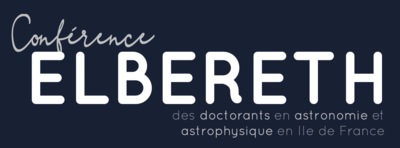Orateur
Description
In some high latitude craters, intriguing moraines are interpreted to have been deposited by CO2 ice glaciers, essentially frozen from when the local climate was colder (i.e., when Mars obliquity was low) [1]. This scenario has been little studied, but it suggests that the atmosphere could totally collapse into CO2 glaciers, leaving behind a residual atmosphere of only Argon and N2, but 20 times less dense than today [2].
However, these results are based on a radiative equilibrium that does not take into account all the dynamics of the atmosphere. Such periods of low obliquities generally last tens of thousands of years [3], making a complete simulation with a classical Global Circulation Model impossible.
We will present the preliminary results of our climate simulations of Mars at low obliquity based on our new tool which is the Planetary Evolution Model developed at the LMD (Fig 1.). This model allows us to simulate the evolution of the climate, based on the LMD GCM, over long-time steps. Particular attention will be paid to the condensation of the atmosphere in the form of CO2 glaciers, and to the composition of the residual atmosphere.
References:
[1] Kreslavsky and Head, Carbon dioxide glaciers on Mars: Products of recent low obliquity epochs(?). Icarus, 216:111–115, 2011.
[2] Kreslavsky and Head. Mars at very low obliquity: Atmospheric collapse and the fate of volatiles. Geophysical Research Letters, 32(L12202), 2005.
[3] Laskar, Correia, Gastineau, Joutel, Levrard, Robutel, Long term evolution and chaotic diffusion of the insolation quantities of Mars. Icarus 170, 343–364, 2004.
Acknowledgments:
This project has received funding from the European Research Council (ERC) under the European Union’s Horizon 2020 research and innovation programme (grant agreement No 835275).
Day constaints
ne peut pas être présent le jeudi
| Field | Planetology (including small bodies and exoplanets) |
|---|
